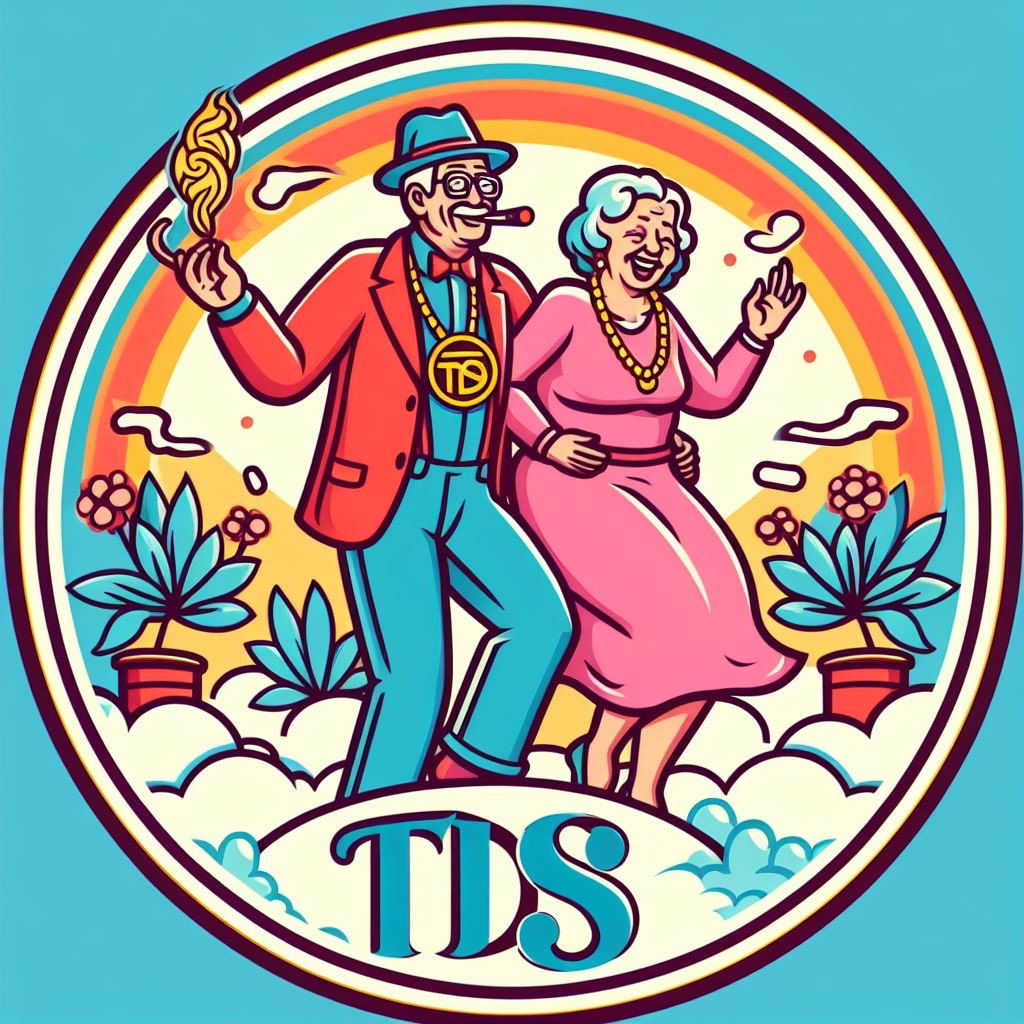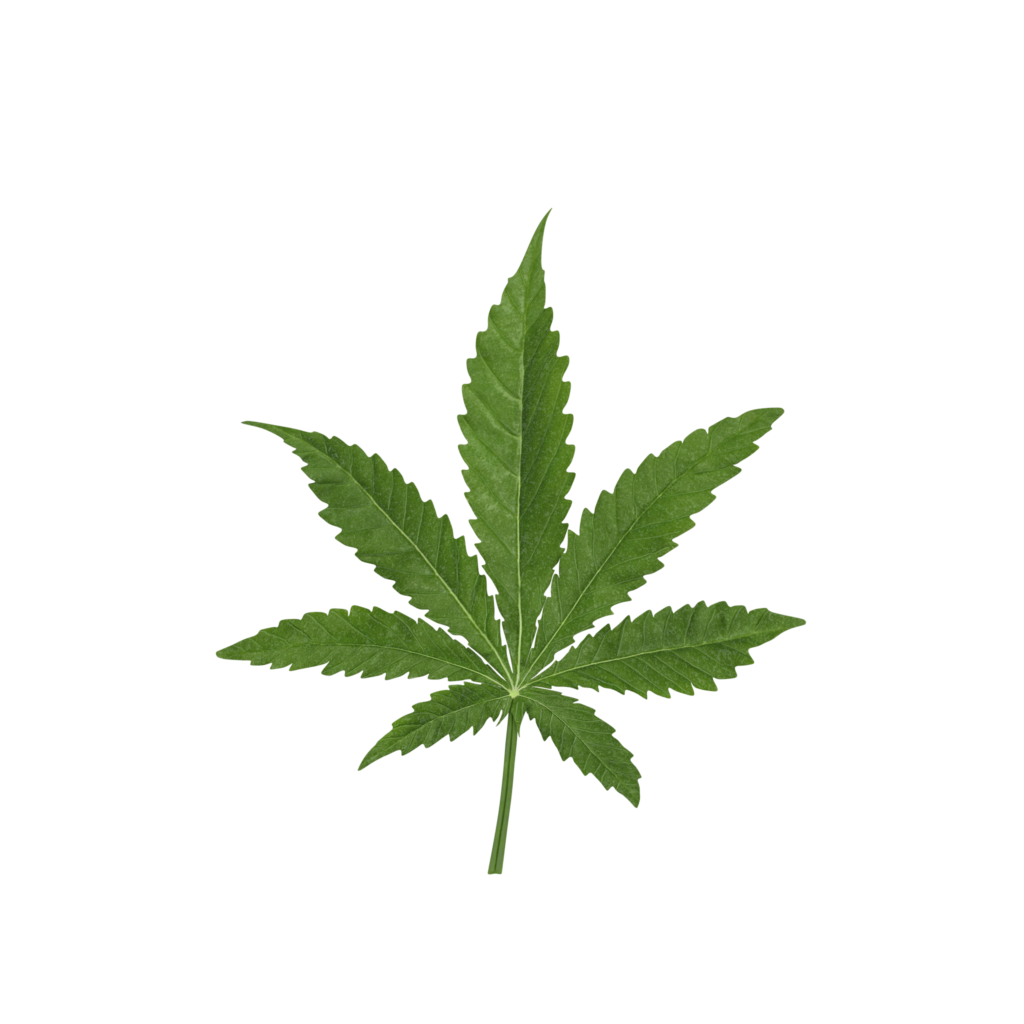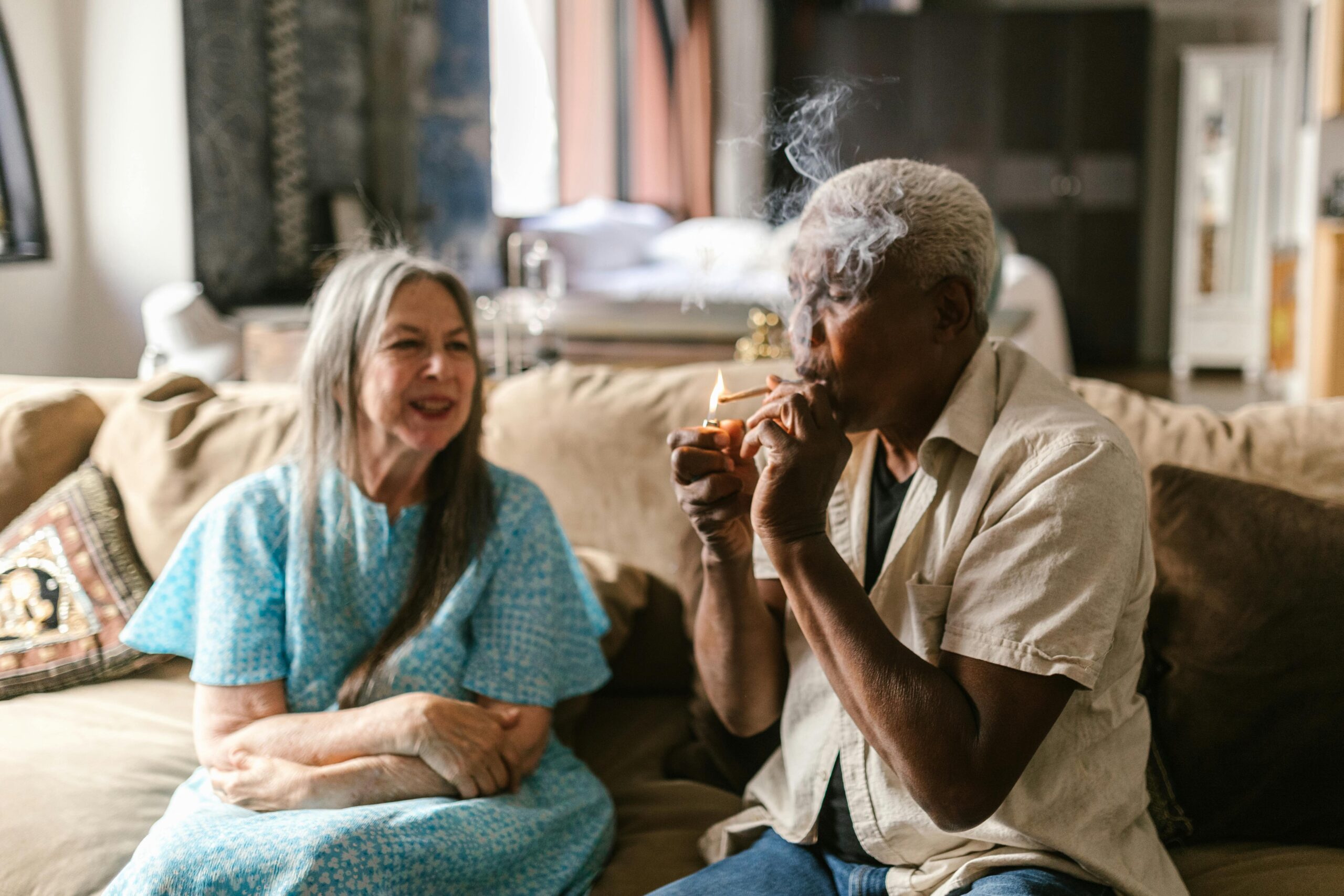In recent years, there has been a significant increase in cannabis consumption among the elderly. This demographic, once hesitant or skeptical about cannabis, is now exploring its potential benefits for various health conditions and overall well-being. Several factors contribute to this trend, including changing perceptions, increased legalization, and growing evidence of cannabis’s medicinal properties. Let’s discuss why more elderly individuals are Smoking through the Ages.
Changing Perceptions and Legal Landscape
Shifting Attitudes

https://amzn.to/41nFYWw
Stigma Reduction: Historically, cannabis has been associated with negative stereotypes. However, as more information emerges about its therapeutic benefits, the stigma surrounding cannabis use is diminishing.
Informed Decisions: Elderly individuals are now more informed about cannabis, thanks to widespread media coverage, educational campaigns, and discussions with healthcare providers.
Legalization
Access and Availability: The legalization of medical and recreational cannabis in many states and countries has made it easier for the elderly to access cannabis products. Dispensaries offer a range of products tailored to different needs, making cannabis more accessible to seniors.
Regulated Market: Legalization ensures that products are tested and labeled accurately, giving elderly consumers’ confidence in the safety and consistency of what they are using.

Medical Benefits for the Elderly
Pain Management
Chronic Pain Relief: One of the primary reasons elderly individuals turn to cannabis is for pain management. Conditions such as arthritis, neuropathy, and general age-related aches can be alleviated with cannabis, particularly with CBD-rich strains.
Alternative to Opioids: Cannabis offers a potential alternative to opioids and other prescription painkillers, which can have significant side effects and risk of dependency.
Sleep Improvement
Combatting Insomnia: Many seniors struggle with sleep disorders. Cannabis, especially indica-dominant strains, can help promote relaxation and improve sleep quality.
Non-Habit Forming: Unlike some sleep medications, cannabis is less likely to cause dependency when used responsibly.
Mental Health
Anxiety and Depression: Cannabis, particularly CBD, has shown promise in reducing anxiety and depression, conditions that can be prevalent in the elderly due to isolation, health issues, and other life changes.
Cognitive Health: Emerging research suggests that cannabinoids may have neuroprotective properties, potentially benefiting cognitive health and reducing the progression of neurodegenerative diseases like Alzheimer’s.
Appetite Stimulation
Combating Appetite Loss: Conditions like cancer, HIV/AIDS, and the side effects of certain medications can lead to appetite loss. Cannabis, known for its appetite-stimulating effects, can help elderly individuals maintain a healthy diet.
Considerations for Safe Use
Start Low and Go Slow
Dosing: It’s crucial for elderly users to start with a low dose and gradually increase it to find the optimal amount. This approach helps avoid adverse effects and allows the body to adjust to cannabis.
Product Selection: opt for products with clear labeling and dosing information. Edibles, tinctures, and oils provide controlled dosing compared to smoking.
Consult Healthcare Providers
Medical Advice: Always consult with a healthcare provider before starting cannabis, especially if taking other medications. Cannabis can interact with certain prescriptions, so professional guidance is essential.
Tailored Recommendations: Healthcare providers can help choose the right strain and method of consumption based on individual health needs and conditions.
Method of Consumption
Avoid Smoking: Smoking may not be ideal for elderly users due to potential respiratory issues. Alternatives such as vaporizers, edibles, tinctures, and topicals offer safer consumption methods.
Consistent Dosing: Edibles and tinctures allow for consistent dosing, which is important for managing symptoms effectively without experiencing intense psychoactive effects.
Awareness of Side Effects
Monitor Reactions: Be aware of potential side effects such as dizziness, dry mouth, and cognitive impairment. Monitoring reactions and adjusting dosage accordingly can help mitigate these effects.
Hydration and Nutrition: Staying hydrated and maintaining a balanced diet can help alleviate some minor side effects associated with cannabis use.
Conclusion
The rise in cannabis use among older adults signifies an increasing acknowledgment of its potential advantages for treating diverse health issues and enhancing life quality. As attitudes change and availability increases, a greater number of seniors are considering cannabis for therapeutic purposes. By beginning with minimal doses, seeking advice from medical professionals, and selecting appropriate products, the elderly can integrate cannabis into their health regimens safely and beneficially. This tendency underscores the need for ongoing research and education to promote knowledgeable and prudent use of cannabis across different ages.



Leave a Reply